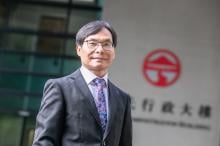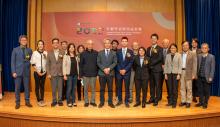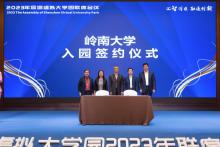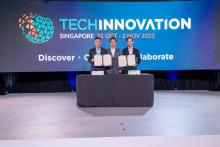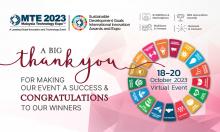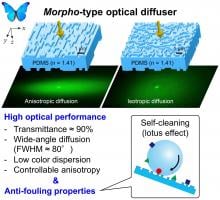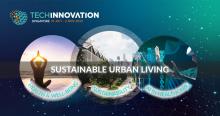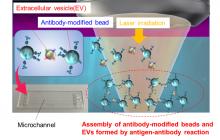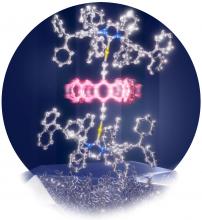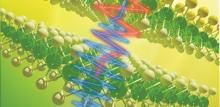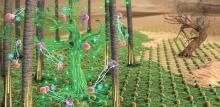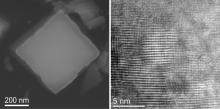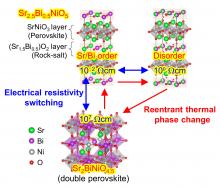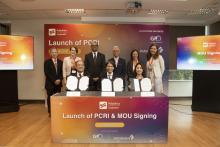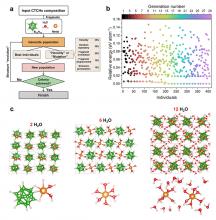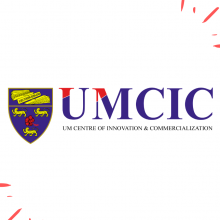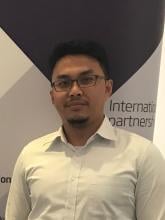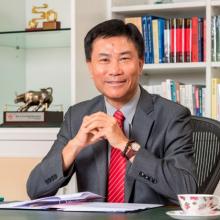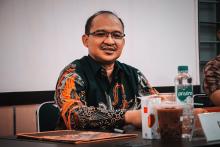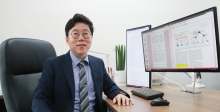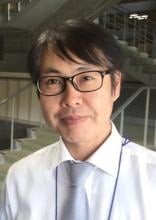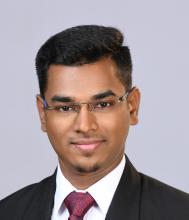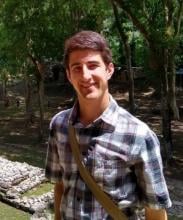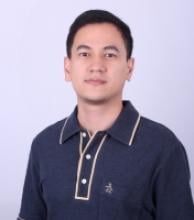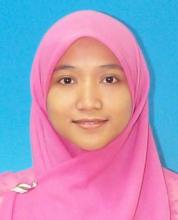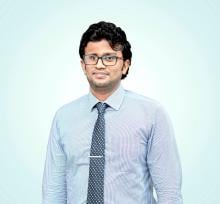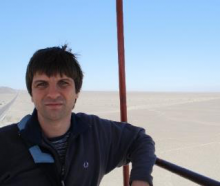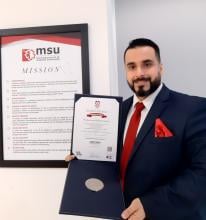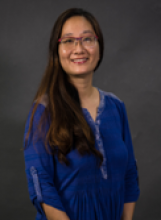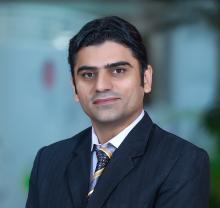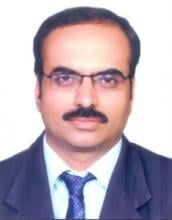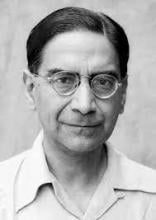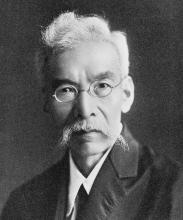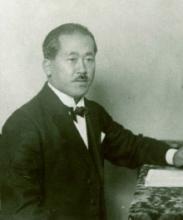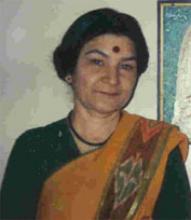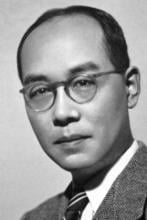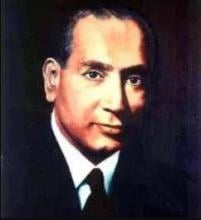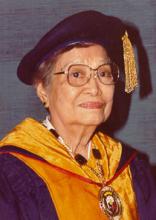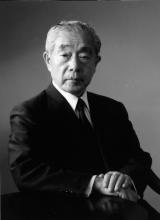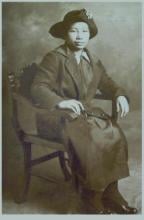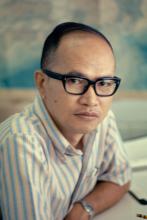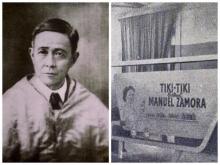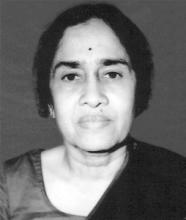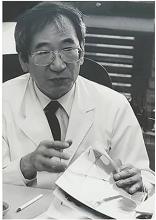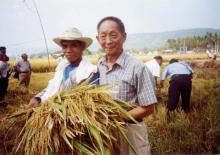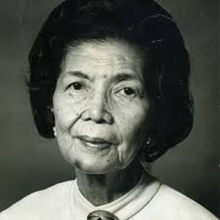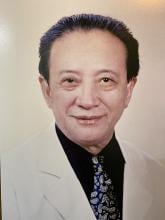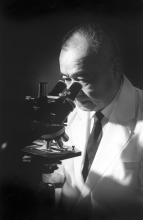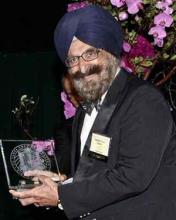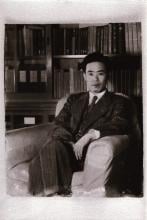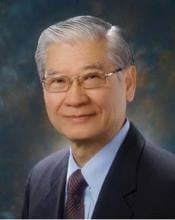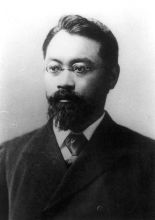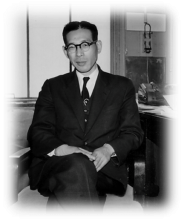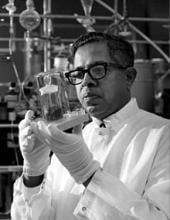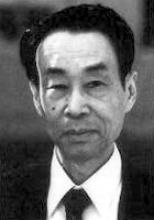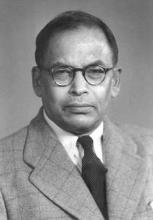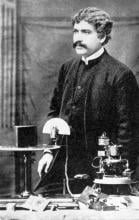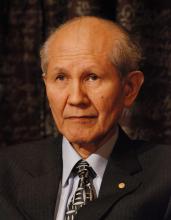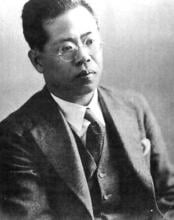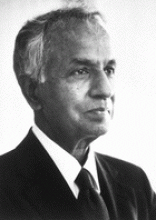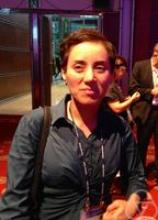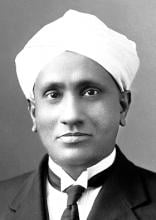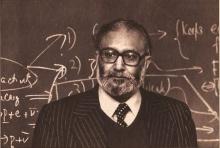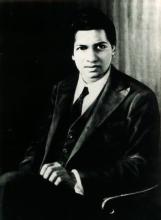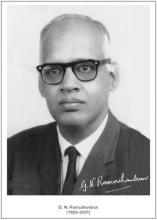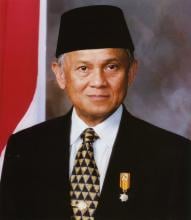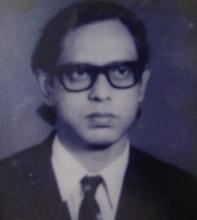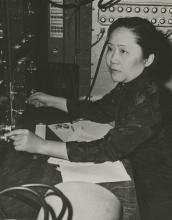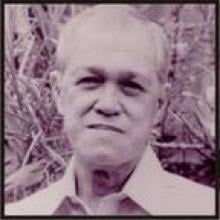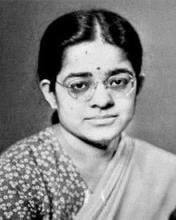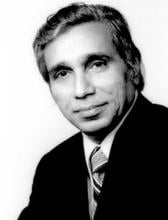Innovation
News
14 Dec 2023
Lingnan University and Manchester University co-hosted a two-day China and Higher Education Conference 2023 on 13-14 December, exploring the theme "New Spaces and Places in Education: Technology and Innovation in Chinese Higher Education". The conference brought together distinguished representatives from the global academic community. The keynote address by Prof S. Joe Qin, the President of Lingnan University, at this event was particularly noteworthy, adding a touch of brilliance to the entire proceedings.
13 Dec 2023
Prof Sam Kwong Tak-wu, Lingnan University's Associate Vice-President (Strategic Research) and Chair Professor of Computational Intelligence, has been elected as a 2023 class Fellow of the National Academy of Inventors (NAI). Prof Kwong is one of only two Hong Kong scholars to receive this prestigious recognition. The NAI Fellows Selection Committee chose Prof Kwong for induction for his spirit of innovation in creating or facilitating outstanding inventions that have made a tangible impact on the quality of life, economic development, and welfare of society. Prof Kwong will receive his medal at the NAI 13th Annual Meeting on 18 June 2024 in the US.
06 Dec 2023
The names of awardees for the 2023 Academia Sinica Early-Career Investigator Research Achievement Award have been announced, and the Awards Ceremony was held on December 5 (Tuesday), with AS President James C. Liao presiding and presenting medals and prizes to the awardees.
16 Nov 2023
The winners of the Applied Microbiology International Horizon Awards were announced at the prestigious Environmental Microbiology lecture 2023, held at BMA House in London on November 16.
15 Nov 2023
On 14 November 2023, Lingnan University and the Shenzhen Technology and Innovation Commission signed an agreement at the 2023 Assembly of Shenzhen Virtual University Park, announcing that Lingnan University will officially become a member of the Shenzhen Virtual University Park.
13 Nov 2023
Steel and aluminum are key players in supporting economic growth, yet materials joining them remain unexplored due to their fusion zones’ brittleness. A new 3D printing method’s fix may be a step toward a steel-aluminum hybrid renaissance.
09 Nov 2023
New shrimp species in ancient hot spring, Super sprouts, How "warm-ups" work, New antiviral candidate, Solving voltage decay and from our blog: A sustainable future shines in TIE 2023. Read all in the latest Editor's Choice.
07 Nov 2023
SINGAPORE, November 7, 2023 – TechInnovation 2023, IPI's flagship event and a premier technology-matching platform, successfully concluded on Thursday, 2 November 2023, profoundly impacting audiences with insights into Sustainability, Health & Well-being, and AI in Healthcare. Over 5,000 people registered to attend TechInnovation, which brought together industry leaders, innovators, and technology experts alike to share and discover opportunities to partner and collaborate to create a sustainable future.
30 Oct 2023
This prestigious event will feature 400 education leaders from schools and higher education establishments across Asia, taking the stage to share insights and best practices on shaping the digital future of education.
24 Oct 2023
Layered lithium cobalt oxide, a key component of lithium-ion batteries, has been synthesized at temperatures as low as 300°C and durations as short as 30 minutes.
23 Oct 2023
[Kuala Lumpur, 21 October 2023] - The MTE 2023 Sustainable Development Goals International Innovation Awards & Expo, a virtual expo held from 18th to 20th October 2023, witnessed a gathering of visionaries, innovators, and advocates committed to advancing the United Nations' 17 Sustainable Development Goals (SDGs).
20 Oct 2023
New perspective argues pursuing fair AI for healthcare requires cross-disciplinary collaboration to translate methods into real-world benefits.
16 Oct 2023
The shortlist for the Applied Microbiology International Awards 2023 has now been announced.
The AMI Awards programme is designed to celebrate the brightest minds in our field and promote the research, group, projects, products and individuals who continue to help shape the future of applied microbiology.
11 Oct 2023
In a recent publication in EPJ Quantum Technology, Le Bin Ho from Tohoku University’s Frontier Institute for Interdisciplinary Sciences has developed a technique called "Time-dependent Stochastic Parameter Shift" in the realm of quantum computing and quantum machine learning. This breakthrough method revolutionizes the estimation of gradients or derivatives of functions, a crucial step in many computational tasks.
11 Oct 2023
Researchers at Osaka University developed a nanostructured light diffuser that provides balanced lighting by diffracting blue and red light, and can be cleaned by simple rinsing with water. The diffuser consists of cheap materials and can be shaped with common tools. A protective glass coating maintains the diffuser’s optical performance yet adds durability. This work might improve the visual performance of everyday lighting displays.
10 Oct 2023
Asia’s premier technology-matching platform returns for its 11th edition from 31 October to 2 November at Marina Bay Sands.
09 Oct 2023
The legacy of Sarawak's dedication to fostering innovation and technology will continue to reverberate on the international stage
05 Oct 2023
Hunting for supermassive black holes, Coastal survival at risk, Calcium and dead cell clean-up, Two naps are better than one & Pineapple leaf prosthetics. Read all in the latest Editor's Choice.
05 Oct 2023
The finalists in the Applied Microbiology International Product of the Year Award 2023 have been announced. The awards promote the research, groups, projects, products and individuals who are shaping the future of applied microbiology.
05 Oct 2023
Osaka Metropolitan University researchers have used the power of laser light to accelerate the reaction between cancer cell-derived extracellular vesicles—a kind of nanoparticle—and antibody-modified microparticles. The three-dimensional structure of the resulting aggregates was then analyzed using a confocal optical system. The results demonstrated the ability to measure, within 5 minutes, approximately 1,000 to 10,000 nanoscale EVs contained in a 500 nL sample.
29 Sep 2023
The behavior of electrons in liquids is crucial to understanding many chemical processes that occur in our world. Using advanced lasers that operate at the attosecond, a team of international researchers has revealed further insights into how electrons behave in liquids.
29 Sep 2023
Concave, umbrella-like metal complexes provide space to enable the largest molecular rotor operational in the solid-state.
26 Sep 2023
An international group of researchers have proposed a new mechanism to enhance short-wavelength light (100-300 nm) by second harmonic generation (SHG) in a two-dimensional, thin material composed entirely of commonplace elements.
21 Sep 2023
A group of researchers have unraveled the mysteries behind a recently identified material—zirconium nitride (ZrN) —that helps power clean energy reactions. Their proposed framework will help future designs for transition metal nitrides, paving a path for generating cleaner energy.
13 Sep 2023
Systematic copper doping boosts all-solar utilization in tungstic acid nanocrystals.
10 Sep 2023
In this collaborative project between Newcastle University and Universiti Malaysia Perlis (UniMAP), the team aimed to create a sustainable, cost-effective lower limb prosthetic socket (LLPS) using natural fiber-reinforced composites. The objectives included designing a green LLPS, assessing its environmental impact, and engaging stakeholders. Pineapple Leaf Fiber (PALF) was chosen for sustainability. The project has also inspired worldwide interest in sustainable LLPS development through a press release, receiving inquiries from students at Nanyang Technological University in Singapore and a group of 7th graders in the USA.
06 Sep 2023
Researchers scientists have unlocked a new realm of possibilities for non-volatile phase change memory, a type of electronic memory capable of retaining data even without power. Traditionally, researchers have relied on chalcogenides, materials with reversible electrical properties during transitions between crystalline and amorphous states. But an exciting alternative has emerged in the form of layered nickelates, complex oxide materials composed of nickel ions. These nickelates, with their unique layered structure and thermally reversible switching of room-temperature electrical resistivity, offer superior performance and sustainability potential.
29 Aug 2023
It is the first local research and innovation platform enabling Primary Care Professionals from public and private healthcare to deliver stronger primary care and improve patients’ health outcomes
28 Aug 2023
Solid-state batteries are a safer option that can hold even more energy than current go-to lithium-ion versions, but effectively harnessing their structure-performance relationship has remained a complex barrier to better batteries. Now, however, researchers at Tohoku University’s Advanced Institute for Materials Research in Japan have developed a framework to predict how the structure of solid-state electrolytes can affect the performance of a battery.
23 Aug 2023
SLINTEC, Monash University Malaysia, and Newcastle University UK and Singapore teamed up for Poseidon: a patented portable water filtration device attachable to a bottle, offering clean drinking water for those lacking access.
Events
21 Mar 2022
The annual Malaysia Technology Expo (MTE) is set to return virtually from 21-25 March 2022. 2021 has been an eventful year as we celebrated the 20th Anniversary of MTE amidst a pandemic. Pivoting to the virtual space has not diminished its presence and popularity of MTE’s awards but allowed a global audience to attend which would have been proven more difficult in a physical event.
06 Sep 2022
Themed “Security Transformation for the Next Normal – Evolution of Risk Management and Data Protection in a Post Pandemic World”, the 2-day Summit will focus on how the enterprises can transform their security successfully under the cyber security challenges and the escalating cyber threats for the next normal.
22 Oct 2021
To round off TIE 2021, the TIE Online Forum will be held on October 22nd. Inventors and VIPs from Taiwan, Japan, and Germany will present their recent innovations and breakthroughs.
28 Sep 2021
TECHINNOVATION is a premier technology-to-industry matching event presented by IPI. It brings together international technology providers and enterprises to accelerate the commercialisation of emerging technologies, seed licensing opportunities and foster open innovation collaborations.
14 Jul 2021
Intelligent Mobility 2021 will offer a platform for industry experts, thought leaders, policy makers, city planners and researchers to discuss the future of mobility, growth opportunities emerging as a result of disruptive innovation, and the potential impact of new business models.
07 Oct 2021
The National Healthcare Group (NHG) is proud to present the 19th Edition of the Singapore Health & Biomedical Congress (SHBC).
14 Oct 2021
Taiwan Innotech Expo (TIE) is the leading invention show in Asia. The event will take place from October 14-16, 2021 at Taipei World Trade Center Hall 1.
25 Oct 2021
First in the region focused on recognizing innovations, initiatives, programmes and ideas which contribute to sustainability, eradicating poverty, improving well-being, protecting our planet, and building peace and prosperity.
14 Jun 2021
Scheduled to return in June 2021, the awards were created to recognize and honour all COVID-19-related inventions.
13 Dec 2021
The internationally renowned exhibition is the region’s professional marketplace for ideas and inventions, and is back to bring together some of the best ideas from around the world.
24 Nov 2020
The two-day strategic summit—”Intelligent Mobility: The Digital Acceleration“—will feature curated webinars, insightful panel discussions, and other online events.
03 Nov 2020
The Singapore Centre for 3D Printing is pleased to share our first online webinar in collaboration with HP-NTU Digital Manufacturing Corporate Lab.
05 Aug 2020
In collaboration with EmTech Asia, SGInnovate is holding a forum for clinicians and scientists residing in Singapore who are looking to commercialise their research in the fields of Human Health, Urban Sustainability and Supply Chain & Logistics.
22 Mar 2021
Rethinking education in the new normal. Future EdTech 2021 brings you this perfect opportunity to meet thousands of educators from primary education to universities.
22 Mar 2021
A strong advocate of creativity and development of innovations, MTE acts as a catalyst to create synergy between entrepreneurs and the science and technology communities to work together towards global partnerships.
The Khwarizmi International Award (KIA) acknowledges the efforts made by researchers, innovators and inventors from across the globe and to appreciate their high quality research work and contributions to different fields of science and technology.
08 Jul 2020
This program has identified many outstanding companies from the Automotive, Energy, Building & Environment industries to the Healthcare, Information Communication Technologies and Logistics sectors in Asia Pacific.
24 Sep 2020
Taiwan Innotech Expo (TIE) is the biggest invention show in Asia, It will take place in Taipei World Trade Center Hall 1 from Sep. 24 to Sep. 26, 2020
09 Mar 2020
Find the right UM startup partner for your next business during UM Startup Co-Founder Search Day 9th March 2020.
03 Jun 2020
An important message from the organisers - due to the escalating situation globally, Innovfest Unbound will no longer be taking place on 3-4 June 2020.
20 Nov 2020
As we continue to confront the challenging conditions that we are facing from the pandemic this year, ITEX remains steadfast and committed to its strength to convene innovators and inventors from Malaysia and around the world, with the new ITEX ONLINE taking centrestage with a convenient borderless invention platform.
03 Jun 2020
New dates and agenda announced.. Distance participation only. Check out latest news at conference website.
14 Oct 2020
Asia Pacific is the fastest growing global region for the identity market. Identity Week Asia is a world-class virtual event, to help create a more secure world, through the implementation of trusted identity solutions. FREE PASS available for Asia Research News readers!
14 Jan 2020
Organised by the National Research Foundation (NRF) Singapore, the Global Young Scientists Summit (GYSS) brings together distinguished scientists, post-graduates and academics for four days of learning and mentoring from 14 to 17 January 2020.
04 Aug 2020
Join the First EmTech Asia Virtual Conference on the Emerging Technologies That Matter
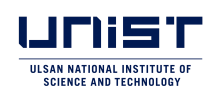
10 Sep 2019
South Korea's Ulsan National Institute of Science and Technology is delighted to announce the HFE Labs’ Demonstration Day is scheduled to be held on September 10, 2019.

South Korea's Ulsan National Institute of Science and Technology (UNIST), jointly with Ulsan Metropolitan City, held the "Graphene Symposium in Ulsan" on Wednesday, May 8, 2019.

South Korea's Ulsan National Institute of Science and Technology (UNIST) held a ceremony to mark the official opening of Smart Port Logistics Data Center.
13 Jan 2020
Duxes is pleased to announce the launch of the Smart Wearable Device Asia Pacific Summit 2020 (SWAP), that will take place in Shenzhen, China. January 13-14. This upcoming event aims to meet the latest demands of companies in the smart wearable device market, shedding light on current hot topics, industry concerns and the latest innovations.
Researchers
University of Malaya
Ridha is a Senior Lecturer in the Department of Mechanical Engineering and is jointly an associate member of Advanced Manufacturing and Materials Processing (AMMP) Center at the University of Malaya.
Lecturer in Forensic Chemistry field. Actively engaging in agricultural waste upcycling into nanatechnology products.
Universiti Teknologi MARA (UiTM)
Dr. Syerina Azlin Md Nasir received her Ph.D. in Information Technology from Universiti Teknologi MARA (UiTM), Malaysia and her undergraduate studies at University of Salford, United Kingdom. She is a senior lecturer in Faculty of Computer and Mathematical Sciences at UiTM Cawangan Kelantan, Malaysia where she has been a faculty member since 2004. She has been engaged to research works such as conferences, workshops and become a member of Business Datalytics Research Group. She is a member of Microsoft Certified Professional, International Association of Engineers (IAENG), Certified RapidMiner Analyst and Certified Talend Data Integration. Her earlier publications are on database technology, ontology construction and mapping and actively involves in research, consultations and publications. The author’s current interest is on data mining, data analytics, text and web mining.
Lingnan University (LU)
Professor Leonard K Cheng became President of Lingnan University of Hong Kong in September 2013. Prior to joining Lingnan University, he served as Dean of the School of Business and Management of the Hong Kong University of Science and Technology (HKUST Business School) from 2009 to 2013.
Hadiyanto is a researcher at Universitas Jambi in the area of social science, particularly in education. In 2021, He was invited as a speaker AIbotic Series, European Week, and Edutech.
Experienced Subject Matter Expert and Consultant with Leadership, Management, and Strategic Planning Skills. Proven expertise in course validation, curriculum development, and instructional design, bolstered by extensive experience as a Graduate School and Undergraduate Professor and Program Chairperson. Specializes in teaching and managing professional business subjects, delivering engaging instruction, designing
curriculum, and leading academic programs. Demonstrated proficiency in leadership and staff management, fostering collaboration and excellence among team members. Background in sales, insurance, and marketing brings valuable industry insights to academic settings. Committed to promoting academic excellence, fostering student success, and driving
organizational growth through innovative management methods, effective leadership, and strategic planning aligned with the organization's goals and objectives.
Hupron Fadilah is an educator also a professional trainer that helped teachers to design and run joyful school. Experienced as a school leader for Preschool and High School. He also helps school leaders through mentoring and coaching to develop their leadership skills.
Hupron Fadilah is the founder of School Leaders Talk Indonesia and Komunitas Guru Pembelajar.
I am a faculty and the chair of the Department of Information Technology, College of Computer Studies Xavier University Ateneo de Cagayan. I am into security, networking, robotics, authentic assessment, technology and innovation.
The University of Tokyo
Lian is an IT professional with a bachelor's in Computer Science at De La Salle University and a masters in Information Studies at The University of Tokyo. She had previously handled professional projects in culture-based conservation and blended learning. She is currently based in Chiba, Japan as a research student in Sustainability Science at UTokyo's Kashiwa campus. Her research focuses on educational technology for sustainable development (ICT4Ed and ESD). Aside from her day job, Lian enjoys painting and has participated in a number of exhibitions in her hometown, Davao City.
Daegu Gyeongbuk Institute of Science and Technology (DGIST)
Prof. Jeongho Kwak is currently an Assistant Professor at Department of Information and Communication Engineering, DGIST (Daegu Gyeongbuk Institute of Science and Technology),Korea. He is leading the Intelligent Computing & Networking Laboratory (ICNL) at DGIST.
Hiroshima University
Prof. Tomoharu Yasuda's laboratory studies how immune system is regulated through the antigen receptor, intracellular signaling and lymphocyte programming.
Nanyang Technological University
Dr. Arun works as a Research Assistant Professor (RAP) at the Rolls-Royce@NTU Corporate Lab, Nanyang Technological University, Singapore. Through cutting-edge technology development and commercialization, he contributes to the Singapore 2030 Advanced Manufacturing Hub (AMH) and Jurong Innovation District (JID) initiatives. He also acts as an IPT-Lead of the Manufacturing Technologies programme at Rolls-Royce@NTU and leads several projects, researchers, and students.
Lingnan University (LU)
Mr. Brian Katona is an engineer supporting the technical aspects of the Office of Service-Learning’s initiatives in Humanitarian Technology, Entrepreneurship and Social Innovation. He is interested in sharing his expertise with people to help build meaningful and impactful technological and social solutions.
DOST Advanced Science and Technology Institute
Dr. Franz Asunta de Leon is the Director for the DOST - Advanced Science and Technology Institute (DOST-ASTI). With interests in Digital Signal Processing for Audio and Communications, he was the project leader for the Development of a Philippine Indigenous Instrument Sounds Database, also known as KATUNOG (KAlipunan ng KaTUtubong TuNOG).
Lingnan University (LU)
Prof. Albert is an experienced engineer, accomplished entrepreneur, innovative educator and a well-respected humanitarian worker. His research interests include artificial intelligence, robot-assisted search and rescue systems, humanitarian technologies and rural water and sanitation systems.
He is currently an assistant researcher in Jilin University. His research focuses on functional surfaces, bioinspired antifouling coatings, and medical antifouling materials.
International Islamic University Malaysia (IIUM)
Dr. Siti Fauziah Toha's main expertise in Artificial Intelligence Modelling and Control optimisation of complex systems and its applications.
Prasanna Lakmal is a lecturer at the Department for Commerce & Financial Management of the University of Kelaniya, Sri Lanka.
Universiti Teknologi MARA (UiTM)
Dr. Fariha is a Senior Lecturer and a Civil Engineer at Universiti Teknologi MARA, Malaysia. She is actively conducting research on Kenaf-sorb beads that is potentially for wastewater treatment at the factory’s effluent point.
Frederico Castelo Ferreira's current research interest balances between fundamental and applied research, with potential translation into the market of sustainable products and processes.
Dr. Mohammed N. Abdulrazaq is currently an Assoc. Prof. at Department of Engineering & Technology, Management & Science University (MSU), Malaysia.
Taylors university
Dr Chin Chin Sia is a senior lecturer in the Faculty of Business & Law, Taylor's University, Malaysia.
Universiti Malaysia Sabah
Dr. Connie Cassy Ompok is an early childhood education expert and a Senior Lecturer at the Faculty of Psychology and Education, Universiti Malaysia Sabah. She Started her career in Early Childhood Education as a preschool teacher (2004-2007), a lecturer in early childhood education at the Malaysian Institute of Teacher Education (2008-2016) before serving as a Senior Lecturer in Early Childhood Education at UMS (2016 until now).
Universiti Teknologi MARA (UiTM)
Senior lecturer at School of Chemical Engineering, Universiti Teknologi MARA, Cawangan Pulau Pinang, Malaysia. He is also Head of Lab EMZI-UiTM Nanoparticles Colloids
Rabin Mahat is a result-oriented and multifaceted doctoral student in Experimental Condensed Matter Physics at The University of Alabama, USA. He is currently working under the guidance of Dr. Patrick LeClair, and Dr. Arunava Gupta. He received M.Sc. in Physics in 2013 from Tribhuvan University, Nepal. He also received his second M.Sc. in experimental Condensed Matter Physics from the University of Alabama in 2019. Rabin's main research is focused on the discovery of novel half-metallic Heusler compounds for potential spintronics device applications. He excels academic and professional expertise in process engineering, research procedures and material science.
Dr. A. Ahmad obtained his BS, MSc, and PhD degrees in Biotechnology and Chemical Engineering, respectively. Dr. Ahmad's areas of expertise include algal engineering for bioenergy production, environmental remediation, dark fermentation, and biochemicals, CO2 mitigation, industrial wastewater treatment, and heavy metals biosorption. Ahmad has worked on several projects using integrated microalgal engineering in industrial wastewater. Dr. Ahmad has published over 35 articles in peer-reviewed journals and conference proceedings and generated significant research interest. He serves as a reviewer for more than ten scientific journals.
Currently a research assistant in the laboratory of green energy in Zhejiang University of Technology.
Dr. Shreshth Chhabra holds a PhD degree in Labour welfare. He has a teaching experience of almost 21 years and taught at undergraduate, Post graduate, Executive Programme, PhD coursework level and guided research projecs. In his present assignment, he is associated with DCBS, an affiliate college of De Montfort University, UK. He was associated with a Renaissance university as Coordinator Research wing and PhD supervisor. He has published in national and international Journals, Conferences and dailies. He is associated as reviewer in two international prestigious journals – Global Journal of Labour, University of the Witwatersrand, South Africa and Journal of HRM, Science publishing group, New York, USA. He has conducted MDPs for MSME , State Electricity Board, Police and other corporate as well. He has been recognized by Rotary Club, Amity Business School and EMG-SSM Trust.
A Tenured Professor at the Institute of Space Technology (Pakistan), Dr. Shabbir is working on Polymer based Nanomaterials for water treatment, food safety, nano-drug delivery systems, solar cells and carbon dioxide capture.
My current research is generally on the bioactive compounds, antioxidant and antimicrobial properties especially from agricultural by-product. Recently, I have found that these agricultural by-product has a promising potential to be used as biopesticide. They are not expensive, practical and will not significantly affect the environment and human health.
Giants in history
Physicist and statistician Prasanta Chandra Mahalanobis (29 June 1893– 28 June 1972), who founded the Indian Statistical Institute in 1931, is known for his pioneering application of statistics to practical problems.
Tetsuya Theodore Fujita (23 October 1920 – 19 November 1998) was a Japanese-American meteorologist who created the Fujita scale that classifies the strength of tornadoes based on damage to structures and vegetation.
In 1915, pathologist Katsusaburo Yamagiwa and his research assistant Koichi Ichikawa became the first to prove that chronic exposure to chemicals can cause cancer.
In 1915, Koichi Ichikawa along with pathologist Katsusaburo Yamagiwa became the first to prove that chronic exposure to chemicals can cause cancer.
A pioneer of bio-organic chemistry, Darshan Ranganathan (4 June 1941 – 4 June 2001) is remembered for developing a protocol for synthesising imidazole, a compound used to make antifungal drugs and antibiotics. Widely considered India’s most prolific researcher in chemistry, she also published dozens of papers in renowned journals on protein folding, molecular design, chemical simulation of key biological processes, and the synthesis of functional hybrid peptides and nanotubes.
In his over 30 year career in rice research, Munshi Siddique Ahmad (1924 – 19 October 2011) developed more than 30 varieties of high-yielding rice, including the BRRI Shail strain, which was responsible for increasing the rice production of Bangladesh from 8 million tonnes in 1965 to 20 million tonnes in 1975.
Hideki Yukawa (23 January 1907 – 8 September 1981) was awarded the Nobel Prize in Physics in 1949 for predicting the existence of the pi meson subatomic particle. Japan’s first Nobel laureate, Yakawa also expressed his support for nuclear disarmament by signing the Russell–Einstein Manifesto in 1955.
Ground-breaking cancer researcher Kamal Jayasing Ranadive (8 November 1917 – 11 April 2001) advanced the understanding of the causes of leukaemia, breast cancer and oesophageal cancer through the use of animal models. She was also among the first to recognise how susceptibility to cancer is linked to tumour-causing interactions between hormones and viruses.
Birbal Sahni (14 November 1891 – 10 April 1949), a pioneer of Indian palaeobotanical research, and founder of what is now the Birbal Sahni Institute of Palaeosciences in Lucknow, made multiple contributions to the study of prehistoric plants. These include the discovery of a new group of fossil gymnosperms (named Pentoxylae), reconstruction of the extinct Williamsonia sewardiana plant, and description of a new type of petrified wood from the Jurassic age.
The research of Filipino pharmaceutical chemist Luz Oliveros-Belardo (3 November 1906 – 12 December 1999) focussed on essential oils and other chemicals derived from native Philippine plants.
Japanese chemist Kenichi Fukui (4 October 1918 – 9 January 1998) was the first Asian scientist to be awarded the Nobel Prize in Chemistry. Together with Roald Hoffman, he received this honour in 1981 for his independent research into the mechanisms of chemical reactions.
Filipina chemist María Orosa (29 November 1892–13 February 1945) fought malnutrition and food insecurity in the Philippines by devising over 700 culinary creations including Soyalac, a nutrient rich drink made from soybeans, and Darak, rice cookies packed with Vitamin B1, which could prevent beriberi disease caused by Vitamin B1 deficiency. She was also a partisan of the guerrilla movement resisting Japanese occupation during World War II, and died after being struck by shrapnel while working in her laboratory during the Battle of Manila.
Research by Filipino plant scientist Benito Vergara (23 June 1934 – 24 October 2015) on the physiology of rice led to the development of deep-water and cold-tolerant rice varieties. Vergara also made several contributions to expanding public awareness of rice science.
Filipino chemist and pharmacist Manuel A. Zamora (29 March 1870 – 9 July 1929) is best remembered for his discovery of the tiki-tiki formula to combat beriberi, a disease caused by Vitamin B1 deficiency.
In 1939, biochemist Kamala Sohonie (18 June 1911 – 28 June 1998) became the first woman to be accepted into the Indian Institute of Science (IISc).
Korean parasitologist Seung-Yull Cho (16 November 1943 – 27 January 2019) is remembered largely for his pioneering works to control infections caused by helminthic parasites and his contribution to journal publishing.
Chinese agronomist Yuan Longping (7 September 1930 – 22 May 2021) developed the first varieties of the high-yield, hybrid rice that brought food security to multiple countries including China, which had been ravaged by food shortages as recently as the mid-20th century.
Fe Villanueva del Mundo (27 November 1911 – 6 August 2011) was a Filipina paediatrician who founded the Philippines’ first paediatric hospital.
After witnessing death and suffering as a youth in his home village during World War II, Nguyễn Tài Thu (6 April 1931 – 14 February 2021) set his sights on alleviating pain by becoming a doctor. After studying Traditional Chinese Medicine in China in the 1950s, Thu returned to Vietnam to serve in military hospitals. Eventually, he became the country’s foremost practitioner of acupuncture, a technique he first learned by inserting needles into himself.
Minoru Shirota (April 23, 1899 – March 10, 1982) was a Japanese microbiologist who invented the popular fermented drink Yakult.
Wu Lien-teh (10 March 1879 – 21 January 1960) was a Malaysian-born doctor who invented a mask that effectively suppressed disease transmission. Winning the prestigious Queen’s Scholarship enabled Wu to become the first Chinese student to study medicine at the University of Cambridge.
Physicist Narinder Singh Kapany (31 October 1926 – 4 December 2020) pioneered the use of optical fibres to transmit images, and founded several optical technology companies. Born in Punjab, India, he worked at a local optical instruments factory before moving to London for PhD studies at Imperial College. There, he devised a flexible fibrescope to convey images along bundles of glass fibres.
Japanese physicist Ukichiro Nakaya (1900-1962) made the world’s first artificial snowflakes. He started his research on snow crystals in the early 1930s at Hokkaido University, where there is an unlimited supply of natural snow in winter. By taking over 3,000 photographs, he established a classification of natural snow crystals and described their relationship with weather conditions.
David T. Wong (born 1936) is a Hong Kong-born American neuroscientist who is best known for discovering the antidepressant drug fluoxetine, better known as Prozac.
The techniques that make industrial pearl culturing possible were developed over a century ago at the Misaki Marine Biological Station in Japan. The station’s first director, Professor Kakichi Mitsukuri, emphasized to Kokichi Mikimoto in 1890 that stimulating pearl sac formation was important for pearl growth, and they went on to successfully develop methods for culturing pearls.
The field of solid-state ionics originated in Europe, but Takehiko Takahashi of Nagoya University in Japan was the first to coin the term ‘solid ionics’ in 1967. ‘Solid-state ionics’ first appeared in 1971 in another of his papers, and was likely a play on ‘solid-state electronics’, another rapidly growing field at the time.
Charles Kuen Kao (Nov. 4, 1933 to Sept. 23, 2018) was an engineer who is regarded as the father of fibre optics. His work in the 1960s on long distance signal transmission using very pure glass fibres revolutionized telecommunications, enabling innovations such as the Internet.
Cyril Andrew Ponnamperuma (16 October 1923 – 20 December 1994) was a Sri Lankan chemist who was interested in the origins of life on Earth. His research in chemical evolution showed how inanimate molecules may have given rise to the building blocks of life – a process known as abiogenesis.
Motoo Kimura (13 November 1924 – 13 November 1994) was a Japanese theoretical population geneticist who is best remembered for developing the neutral theory of molecular evolution.
Meghnad Saha (6 October 1893 – 16 February 1956) was an Indian astrophysicist best known for formulating the Saha ionization equation which describes the chemical and physical properties of stars.
Sir Jagadish Chandra Bose (30 November 1858 – 23 November 1937) was a scientist and inventor who contributed to a wide range of scientific fields such as physics, botany and biology.
Osamu Shimomura (27 August 1928 – 19 October 2018) was a Japanese organic chemist and marine biologist who dedicated his career to understanding how organisms emitted light.
Woo Jang-choon (8 April 1898 – 10 August 1959) was a Korean-Japanese agricultural scientist and botanist.
Subrahmanyan Chandrasekhar (19 October 1910 – 21 August 1995) was an Indian astrophysicist who studied the structure and evolution of stars.
Mathematician Maryam Mirzakhani (12 May 1977 – 14 July 2017) was the first and only woman and Iranian to date to win the Fields Medal in 2014 for her work on curved surfaces.
Sir Chandrasekhara Venkata Raman (7 November 1888 – 21 November 1970) was an Indian physicist who performed ground-breaking research in the field of light-scattering.
Mohammad Abdus Salam (29 January 1926 – 21 November 1996) was a theoretical physicist and the first Pakistani to receive a Nobel Prize in science.
Srinivasa Ramanujan (22 December 1887 – 26 April 1920) was a math prodigy and widely considered one of India’s greatest mathematicians. Despite having almost no formal training in mathematics, he made substantial contributions to mathematical analysis, number theory, infinite series and continued fractions.
Gopalasamudram Narayanan Ramachandran (8 October 1922 – 7 April 2001) is best known for developing the Ramachandran plot to understand the structure of short chains of amino acids, known as peptides.
Bacharuddin Jusuf Habibie (25 June 1936 – 11 September 2019) was an Indonesian engineer who was President of Indonesia from 1998 to 1999.
Abdus Suttar Khan (c. 1941 – 31 January 2008) was a Bangladeshi engineer who spent a significant part of his career conducting aerospace research with NASA, United Technology and Alstom.
Chien-Shiung Wu (31 May 1912 – 16 February 1997) was an experimental physicist who made several important contributions to nuclear physics. Wu worked on the Manhattan Project – a top-secret program for the production of nuclear weapons during World War II and helped to develop a process for separating uranium into U235 and U238.
Julian Arca Banzon (13 March 1908 – 13 September 1988) was a biochemist from the Philippines who was a pioneer in alternative fuel research. Banzon investigated the use of indigenous crops as sources of renewable fuels and chemicals.
Rajeshwari Chatterjee (24 January 1922 – 3 September 2010) was the first female engineer from Karnataka in India.
Fazlur Rahman Khan (3 April 1929 – 27 March 1982) was a Bangladeshi-American structural engineer and architect who invented the tube principle, which formed the basis for modern skyscraper design.



